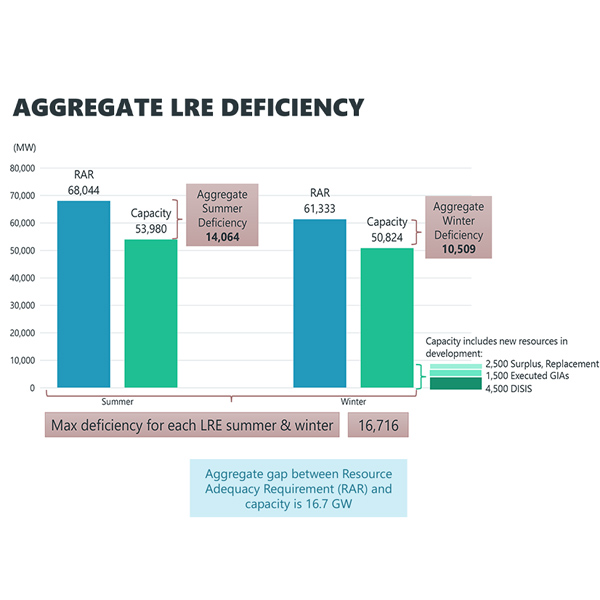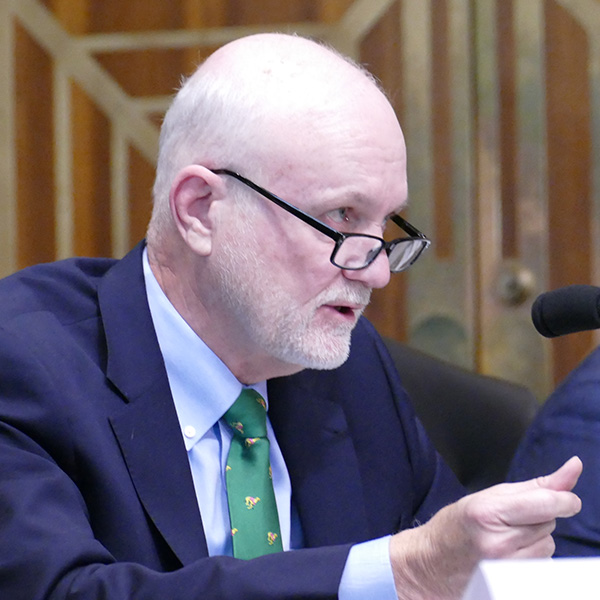effective load-carrying capability (ELCC)
Stakeholders rejected the installed reserve margin and forecast pool requirement values recommended by PJM staff, with some opposed arguing that the inputs remain nebulous.
SPP is celebrating several recent FERC orders that have strengthened its resource adequacy framework that it says will secure a “reliable energy future” for its region.
The Planning Committee endorsed by acclamation a PJM proposal to rework how it determines which jurisdiction a resource point of interconnection falls under.
FERC approved a PJM proposal to revise the penalty rate for resources that are unable to meet their capacity obligation due to a decrease to their accreditation.
A new ACEG report says interregional transmission offers resource adequacy benefits and highlights how regions can take advantage of that.
The PJM Markets and Reliability Committee endorsed a proposal intended to add transparency to the RTO’s effective load-carrying capability process.
PJM will present a proposal aiming to make the RTO’s effective load-carrying capability (ELCC) process more transparent.
The NYISO Market Monitoring Unit told stakeholders it is independently analyzing the capacity market in parallel with the ISO’s ongoing Capacity Market Structure Review project.
The PJM Markets and Reliability Committee endorsed a proposal to rework how resources are compensated for providing black start service the RTO says will provide more predictable revenues for participating market sellers.
PJM’s Markets and Reliability Committee endorsed two proposals to revise the RTO’s ELCC formula to add two new generation categories and limit the penalties resources face if their accreditation declines between auctions.
Want more? Advanced Search










